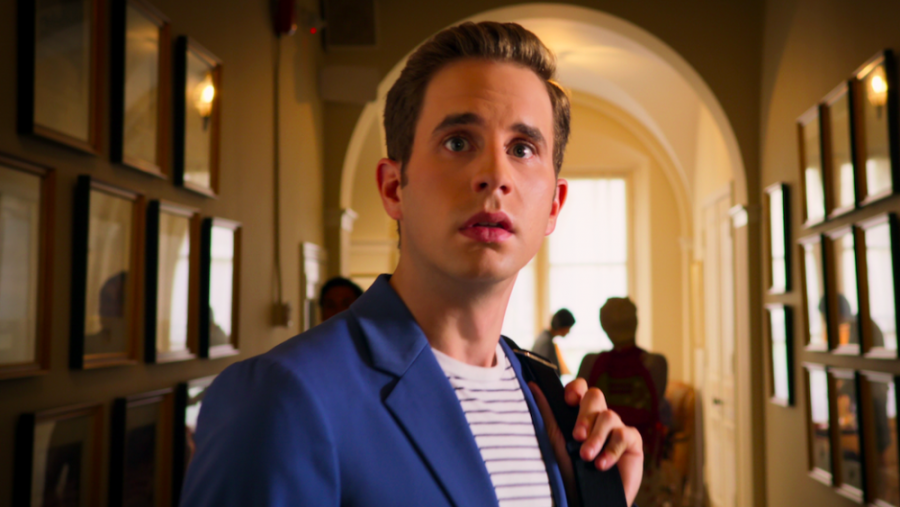The Politician: A Spoiler-Free Review of Netflix’s Most Ambitious Creation
October 10, 2019
The Politician dropped on Netflix on September 27th, and needless to say I binged the whole thing in less than a week. I mean, how could I resist a darkly comic musical centered around politics? It’s like Netflix curated a show specifically for me. It has a stellar cast, and it beautifully integrates politics into a relatable high school format.
The series was created by Ryan Murphy, the same man responsible for hits such as American Horror Story and Glee. It stars Broadway actor and songwriter Ben Platt as the ambitious Payton Hobart. Since he was 7 years old, Payton has always known he was going to be president. He’s the Jewish adoptive son of billionaire parents, Georgina Hobart (Gwyneth Paltrow) and Keaton Hobart (Bob Balaban), who lives in a multi-million dollar estate along with his elder identical twin stepbrothers (Trevor and Trey Eason), who mutually detest each other. He is a senior at Saint Sebastian High School in California. His path to the presidency involves becoming student body president and attending Harvard University. Payton’s longtime friends and campaign managers, James Sullivan and McAfee Westbrook (Theo Germaine and Laura Dreyfuss) have been calculating Payton’s every move to ensure his success in the race. He has the money, the intelligence, the support, and the girlfriend (Alice [Julia Schlaepfer]). All hell breaks loose when River Barkley (David Corenswet), his friend and Mandarin tutor, runs against him due to pressure to do so by Barkley’s girlfriend, and Payton’s archenemy Astrid Sloan (Lucy Boynton from Bohemian Rhapsody). It’s a race that doesn’t just end after one debate. From struggling to find a running mate who’s a member of the greatest number of minority groups (one of whom is played by the wonderful Zoey Deutch) to sabotaging each other’s reputations, it shows the extreme means that people will turn to in times of desperation. With money and the prospect of power, Murphy keeps the viewer wondering, “How far will they go?” Each episode explores this idea deeper, as the plot becomes more complex.
Throughout the series we see strong parallels to real-life issues, some of which include the college admissions scandal, immigration, gun control, mental illness, privilege, sexism, racism, and homophobia. It’s a political satire that brilliantly blurs the lines between Payton’s reality and our own. In the eight episodes of season 1, it manages to tackle countless political issues in a quirky and obscure fashion, while showing us the dark side of politics.
Vox described it as “a show about what happens when an entire culture decides that some voices matter more than others, even if those voices belong to empty suits.” I agree. It’s a show that really goes all over the place, but it is a beautiful one.
While the series ends on a painful cliffhanger, a season 2 has already been confirmed. I would recommend this show to anyone who enjoys a blend of humor, darkness, and unpredictability. It gives viewers a reality check that keeps them on the edge of their seat.

















































































































































